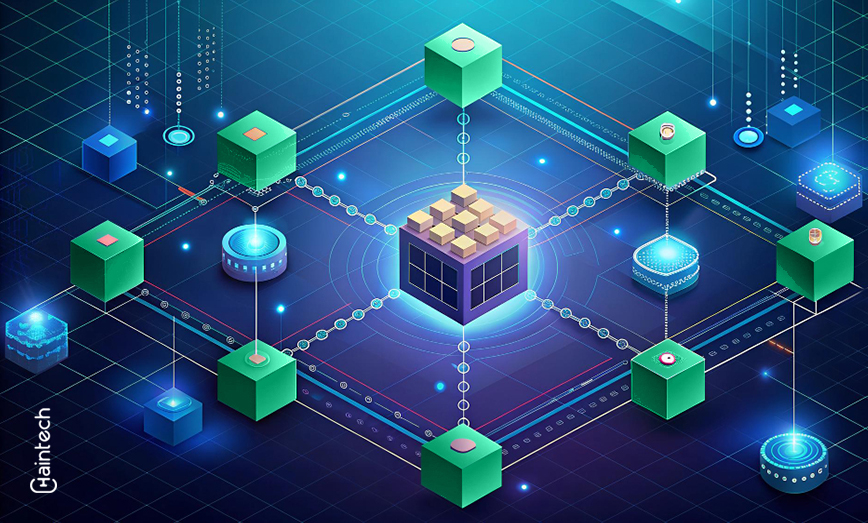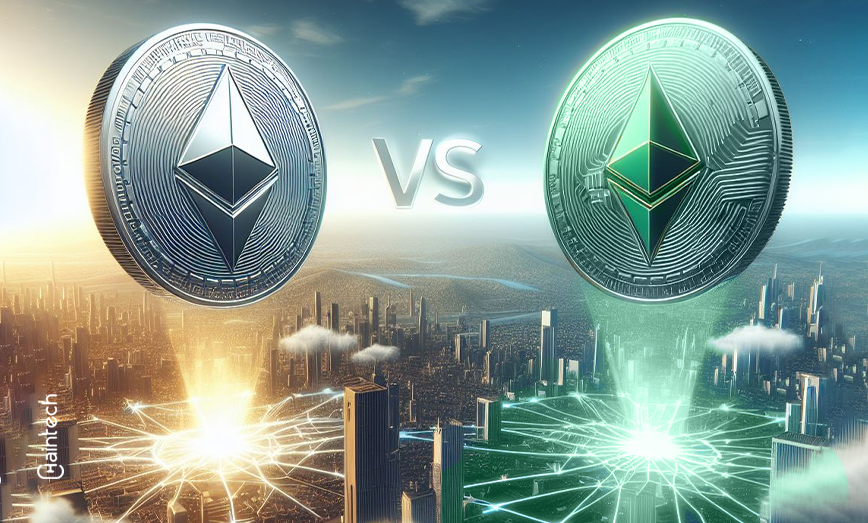Top 5 Blockchain Use Cases You Haven’t Heard Of

Have you ever considered how secure your data is when you shop online? You might also think, How is my credit card information secure when I purchase something, yet the seller gets the transaction done almost instantly? The solution is simple: Blockchain technology changes how we do things. Almost every one of us does this quite often without even realizing it. This is not just for digital assets anymore. Real estate, healthcare, and even cybersecurity are starting to embrace blockchain.
Let us focus on the article, which presents five blockchain use cases you probably don’t know about.
How blockchain is integrated:
- Besides crypto, blockchain has expanded for application in real estate, healthcare, and other industries.
- Several studies have documented that the technology can enhance security, transparency, and efficiency in several sectors.
- Blockchain integrates information storage that is not limited to one body to protect against fraud and improve data control.
Continue reading to learn more about how this technology is set to grow and influence everyone in the future.
With the help of the blockchain, constructing the house you’ve always wanted has become much easier.
On a serious note, looking for the right piece of land can sometimes be a real pain. They can become complicated and costly due to the endless time it requires to wait for documents or communicate with third parties. But blockchain is changing that. Instead of dealing with brokers and endless documents, you could soon handle your property transactions directly and securely using blockchain technology.
Take Propy, for example. This platform uses blockchain to store property information and handle title registrations. This means no more manual filing or worrying about fraud. When a block on the ledger is created, the property data is secured and cannot be changed. Transactions happen in real-time, with very low risk and without the excessive costs associated with agents or brokers.
When you first imagine reframing any process for a property using blockchain, it seems easy. It’s a perfect scenario: less hassle and increased openness.
Strengthening IoT devices
Let’s now turn our attention to all those gadgets that we use on a daily basis, ‘things’ in the Internet of Things (IoT). Tidy your perspective to incorporate smart locks, cameras, or even stove ovens, which are all online. The downside is that often, these devices are the weakest link in the information security chain. As more devices go online, threats increase. This is where blockchain comes in to save the day.
A firm known as HYPR has developed solutions that secure IoT devices through the application of blockchain technology. They constructed a model that makes it almost impossible to hack any device, as it uses biometric authentication rather than simple passwords.
Take, for instance, how blockchain assists in enhancing the security of IoT devices:
- Distributed data: This type of data spreads through several facilities, making it difficult for intruders to focus on a single point.
- Immune to spoofing: Nobody and nothing would touch the data as blockchain is smart enough and encrypted.
- Live replica: Reporting the data in real-time would prevent any attempt to alter or change it without authority.
Blockchain offers a myriad of possibilities that are of great benefit to the IOT. Adding additional security to devices makes them smarter and more connected.
Blockchain in the supply chain: preventing deception and enhancing clarity
When you buy a particular product, has it ever crossed your mind how that parcel moves from one location to another? It is worth noting that there are logistics behind it, and at times, something goes wrong. For example, the loss of shipment or the occurrence of counterfeit products. This is where blockchain is striking in the management of supply chains.
A leading shipping firm, DHL, already uses blockchain technology to track shipments. It records every move the package makes on a secure blockchain ledger. This means everything from manufacturing to delivery is traceable, which reduces the risk of fraud or lost packages.
Blockchain does three big things for the supply chain:
| Benefit | Traditional Supply Chains | Blockchain-Enabled Supply Chains |
| Transparency | Often lacking | Real-time updates and visibility |
| Fraud reduction | There is a high risk of counterfeit | Near zero risk |
| Efficiency | Manual and slow processes | Automated and fast |
The most appealing characteristic is the ability to render processes visible and inherently inviolable. This means it is easy to trace the product’s location at every process step.
Blockchain provides adequate protection for personal information and attributes
Many people and companies suffer theft of personal attributes as identity theft becomes an increasingly serious challenge. The slightest negligence in protecting one’s credit card information or impersonation over the web can have devastating consequences. That is why various industries are looking for better ways to protect personal attributes and information, and blockchain technology is proving to be a very effective solution.
Evernym develops and operates the Sovrin identity network, which encourages individuals to become self-sovereign, meaning they control their identity, including what data they share and with whom. Evernym’s protocol is based on a distributed ledger to ensure that customers’ identity information is not locked in one location, which would be a dream for hackers breaking into banks to steal personal data.
What are three basic features of block chain that help enhance and protect the identity of its users?
- Immutability: The moment the information is created, it becomes impossible to change or erase.
- Decentralization: The absence of a central focus makes it impossible to concentrate attention, looking for an easy entry for cybercriminals.
- User power: The more people know where the information is, the more opportunities there are to steal it.
Thus, there is a significant improvement in the security and safety of one’s digital identity.
Did you know?
Thanks to eliminating third parties, real estate transaction time can now be reduced from weeks to days, all thanks to blockchain technology.
Helps improve healthcare services
The potential that blockchain can bring to healthcare is quite enormous. Currently, patient data is fragmented in various locations, such as the doctor’s office, the hospital, or a pharmacy, and patients do not always have easy access to the required data when needed.
Changing this is possible with the block chain, which would make the history of medicine far easier to access and more secure.
One company gaining a lot of attention for its work within this sector is MediLedger. It is developing a system that would track pharmaceutical products, enabling the verification and safety of legal drugs. This is crucial, considering that counterfeiting drugs is becoming a growing concern.
Here are secure patient records: Every patient has his medical information encoded in a blockchain with the highest security level, which is not secret.
Efficient drug tracking: A blockchain can trace the stages of a drug’s lifecycle from manufacturing to disposal.
Quick access to information: Doctors and patients can view their medical files in seconds and in a secure way.
By integrating medical history and medical instruments through the blockchain, there will be no misunderstandings in providing primary health care, as it will be safe, fast, and reliable.
The future of blockchain
There is more than blockchain, which comes as a cryptocurrency, and it is useful in much more than just real estate transactions, identity thefts, and even healthcare. While it is expected that many industries will embrace the new blockchain technology, industrial solutions to that technology are almost nonexistent. It is the right time to look into blockchain now. Because the prospects are enormous, and this is only the beginning.
FAQs
- How does blockchain ensure security in the context of real estate?
Using a combination of immutable database records coupled with smart contracts, which are capable of executing transactions automatically once instructed conditions are met, blockchain creates trust in real estate transactions. That cuts out middlemen and lowers the chances of fraudulent activity.
- Why does blockchain stand out in the Internet of Things (IoT) scheme?
Thanks to blockchain, IoT devices do not have to rely on a central server for their data, thus making it extremely difficult for hackers to penetrate the system. Furthermore, it protects or secures the data shared amongst devices by ensuring that data is validated in real-time, which helps improve security.
- In what fashion is blockchain employed? In supply chain management?
Every step in the supply chain accurately records all the transactions that took place due to transactions recorded on the blockchain. This contributes to eliminating fraud, protecting the integrity of goods, and increasing the overall open and efficient execution of business processes.
- Can blockchain technology thwart identity theft?
Of course. In a blockchain, users’ personal data is not stored in one place and is encrypted at all times, allowing only the owner to access it. This lowers the risk of identity theft and makes retrieving private information much more secure.
- What effect does blockchain have on the operations of healthcare institutions?
Blockchain technology protects medical records and allows patients and doctors to easily access them. It also monitors the movement of pharmaceutical products in the market. This ensures their authenticity and reduces the chances of counterfeit drugs.









